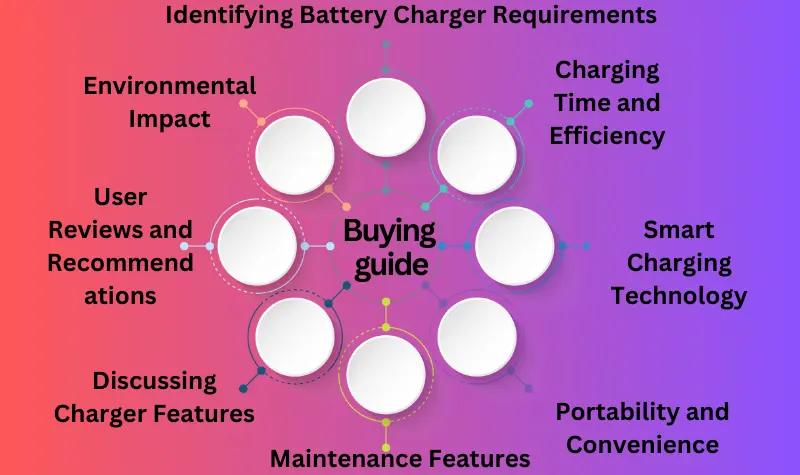Choosing the Right Battery Charger for Your Golf Cart

Choosing the right golf cart battery charger is a critical decision. It can impact the longevity and performance of your vehicle. A suitable charger ensures that your golf cart is always ready for use. It also preserves the lifespan of your batteries, saving you both time and money in the long run. This guide will provide a comprehensive overview of selecting the perfect battery charger for your golf cart. Certain factors must be taken into consideration before purchase. These factors are the type of battery, the voltage requirements, and the charger’s efficiency and reliability.
Types of Golf Cart Batteries
Several types of batteries are used in golf carts. Knowing the differences between these types can help you make an informed decision when choosing a battery charger.
Lead-acid batteries
Lead-acid batteries are the most common type of battery used in golf carts. They are reliable, affordable, and can power golf carts for extended periods. However, lead-acid batteries need regular maintenance and may have a shorter lifespan than other types.
Lithium-ion batteries
Lithium-ion batteries are becoming popular in the golf cart industry. They offer several advantages, including a longer lifespan, lighter weight, and faster charging times. While lithium-ion batteries may come with a higher upfront cost, they become an asset for many golf cart owners due to their energy efficiency and reduced maintenance requirements.
Gel batteries
Gel batteries are a type of lead-acid battery that uses a gel-like electrolyte instead of liquid. They are known for their resistance to vibration and deep cycling capabilities. Gel batteries need minimal maintenance. These batteries are also a suitable option for golf cart owners looking for a durable and reliable battery solution.
Buying guide right Battery Charger

Identifying Battery Charger Requirements
Knowing your specific power requirements is crucial to choosing the right battery charger.
- Understanding your golf cart’s specific power requirements:
Different golf carts have varying power needs. You must know the voltage and capacity specifications of your golf cart’s battery system to select a compatible charger. Additionally, you must know the number of batteries in your golf cart and their configuration (e.g., series or parallel). - Evaluating the charger output: voltage and amperage
Battery chargers come with different voltage and amperage ratings. The voltage rating should match your golf cart’s battery system. The amperage rating determines how quickly the charger can recharge your batteries. Higher amperage chargers can charge batteries more quickly. Consult your battery manufacturer’s recommendations for optimal charging rates.
Charging Time and Efficiency
When selecting a battery charger, consider the charging time and efficiency that meets your needs.
- Fast chargers vs. standard chargers: Fast chargers are designed to charge batteries quickly, It makes them ideal for golfers who need shorter charging times between rounds. But, fast charging can put extra stress on the batteries. Hence, fast charging potentially reduces their lifespan. Standard chargers offer a moderate charging process. This moderate process is generally healthier for the batteries. It’s essential to strike a balance between charging speed and battery longevity.
- Balancing speed with battery health: Finding the right balance between charging speed and battery health is crucial. Opt for a charger that offers a reasonable charging time without compromising the long-term performance and lifespan of your batteries. Consider investing in a smart charger. These chargers can adjust the charging rate based on battery condition. Hence, they ensure optimal charging without overtaxing your batteries.
Smart Charging Technology
Smart chargers are equipped with advanced technology. This technology monitors and controls the charging process. These chargers often come with features such as temperature compensation and battery conditioning. These extra features enhance battery life and optimize performance. While they may come at a higher cost, smart chargers offer peace of mind and long-term benefits for your golf cart’s battery system.
Portability and Convenience
Consider the portability and convenience factors when choosing a battery charger for your golf cart.
- Built-in vs. external chargers: Some golf carts come with built-in chargers, which cut the need for an external charger. But, if your golf cart does not have a built-in charger, an external one may be a more convenient option. External chargers are portable and can be used to charge many batteries, making them ideal for use on the go.
- Compact and lightweight options: If you regularly transport your golf cart or need a charger for travel purposes, consider compact and lightweight options. These chargers are designed to be carried and stored easily, ensuring hassle-free portability.
Maintenance Features
A high-quality battery charger offers many maintenance features. These extra features enhance battery performance and increase battery life. Consider the following maintenance features when choosing a charger:
- Automatic shutoff:
This feature prevents overcharging. They automatically shut off the charger when the battery is charged. This protects the battery from damage and prevents energy waste. - Pulse charging:
Pulse charging is a technique that applies irregular charging cycles to break down built-up sulfate crystals on lead acid batteries. This helps to restore battery capacity and extend its life. - Overcharge protection:
Look for chargers with built-in overcharge protection mechanisms. These protection mechanisms include voltage monitoring, temperature sensors, and charge timers. They help to maintain battery health, safety and maintain battery health. - Temperature regulation:
Temperature-compensated chargers adjust the charging voltage according to ambient temperature. They ensure optimal charging in any weather condition. This feature protects the battery from damage due to extreme temperatures.
Discussing Charger Features
Different battery chargers come with a range of features designed to enhance ease and charging efficiency. Here are a few features to consider:
- Automatic charging:
Chargers with automatic charging functionality notice battery voltage levels and adjust the charging process. This feature eliminates the need for manual voltage selection, saving time and preventing user error. - LCDs:
LCDs provide real-time information about charging progress, battery status, and any errors. This feature allows users to keep track of their battery’s health and diagnose any issues. - Versatile charging options:
Some chargers can charge many battery types. These types include lead acid, gel cell, AGM, or lithium batteries. This versatility makes the charger suitable for a wide range of vehicles and equipment. - Trickle charging:
Trickle charging is a slow and steady charging process that helps to maintain the battery’s charge level. This feature is particularly useful for used batteries, such as those on seasonal vehicles or equipment. - Smart charging technology:
Some advanced chargers use smart charging technology to improve charging. These smart charging technologies are microprocessor-controlled charging algorithms, pulse width modulation, and high-frequency switching. They help to ensure efficient and safe charging for different battery types.
Budget Considerations

When it comes to choosing a battery charger, it’s essential to strike a balance between quality and cost. While cheaper options may seem attractive. But, investing in a high-quality charger can have long-term benefits. Consider the initial investment cost, warranty coverage, and potential energy savings over time. Remember, a reliable charger can extend the life of your batteries, saving you money in the long run.
Environmental Impact
Environmental impacts are also an important consideration when choosing a battery charger. Look for chargers that follow energy efficiency standards and have features that help to reduce waste and emissions. Some examples include automatic closure, energy-saving modes, or the use of renewable energy sources. Additionally, follow proper disposal methods for old or damaged chargers to protect the environment.
User Reviews and Recommendations
Before purchasing, do some research on customer reviews and seek advice from experts or fellow golf cart owners. Reading about others’ experiences with specific battery chargers can help you make an informed choice.
Some other features to Consider
While the above factors are crucial, here are a few additional features that you may find beneficial:
- Multi-stage charging:
Chargers with multi-stage charging capabilities help optimize battery performance and health. For this, the multi-stage charging feature provides specific charging profiles. - Float mode maintenance:
This mode allows the charger to keep the battery charged without overcharging. - Temperature compensation:
Chargers with temperature compensation adjust the charging voltage based on temperature fluctuations. It is to prevent damage from overcharging or undercharging. - Reverse polarity protection:
It protects the charger and battery from harm due to incorrect connection.
Conclusion:
In conclusion, choosing the right battery charger requires careful inspection of various factors. Assess the compatibility of the charger with your golf cart’s battery type and its portability. Besides, also checks automatic shutoff, pulse charging, overcharge protection, and temperature regulation. Also, consider the charger’s extra features, such as LCDs, multiple charging options, and smart charging technology. Remember, a high-quality charger can prolong the life of your batteries and provide long-term savings. Lastly, consider the environmental impact of your choice, user reviews, and expert recommendations. By considering all these aspects, you’ll be able to make an informed decision that best suits your needs.













